
Imagine a dog with the alertness and protective instincts of a German Shepherd and the playful, loving nature of a Corgi. Now, picture this dog trotting down the street, turning heads with its unique features—a sturdy body, intelligent eyes, and perhaps a slightly confused identity. This isn’t just a figment of imagination but a reality for those who have had the pleasure of meeting a German Shepherd Corgi Mix.
The German Shepherd Corgi Mix is a cross between a German Shepherd and a Corgi. You might know this type of dog as a Corman Shepherd, a German Shephergi, or a Corgi German Shepherd. As a breed of designer dogs, Corgi German Shepherds are bred from two pedigrees to create a new breed.
Dive into the world of this fascinating mixed breed as we explore its personality, care needs, and suitability for different types of families.
TABLE OF CONTENTS
- German Shepherd Corgi Mix Quick Summary
- German Shepherd Corgi Mix Parent Breeds
- Physical Characteristics of a German Shepherd Corgi Mix
- German Shepherd Corgi Mix Personality and Temperament
- German Shepherd Corgi Mix Care Guide
- German Shepard Corgi Health Issues
- Corgi German Shepherd Cost
- Should You Get a German Shepherd Corgi Mix?
- FAQs on Corgi German Shepherd Mix
- The Rewards for Loving a Corman Shepherd are Limitless
- Other Corgi and German Shepherd Mixes
German Shepherd Corgi Mix Quick Summary
German Shepherd Corgi Mix Parent Breeds
Before we dive deeper into the world of the German Shepherd Corgi Mix, let’s take a moment to appreciate the parent breeds that contribute to this unique combination.
German Shepherd
Origin
The German Shepherd, a breed known for its versatility and intelligence, originated in Germany in the late 19th Century. Captain Max von Stephanitz is credited with its development, aiming to create the ideal German herding dog. This breed quickly gained recognition for its work ethic, serving in various roles such as police work, search and rescue, and service dogs. I’m particularly impressed by how their origins have shaped their roles in society today.
Physical Characteristics
German Shepherds are large, muscular dogs, known for their distinctive appearance. They typically weigh between 50 and 90 pounds, standing about 22 to 26 inches tall at the shoulder. Their coat, which can be either short or long, comes in colors such as black and tan, sable, and all black. One of their most recognizable features is their erect ears and a bushy tail that curves downward. As someone who appreciates the beauty and diversity of dog breeds, I find the physical stature of German Shepherds to be both majestic and commanding.
Temperament and Behavior
The temperament of a German Shepherd is as noteworthy as their physical prowess. They are known for their intelligence, loyalty, and protective nature, making them excellent family pets and working dogs. German Shepherds are highly trainable, eager to learn, and possess a desire to please their owners. However, they require regular mental and physical stimulation to keep them from becoming bored or anxious.
Welsh Corgi
Origin
Delving into the origins of the Corgi, we find a breed steeped in folklore and history, primarily associated with Wales in the United Kingdom. There are two types of Corgis: the Pembroke Welsh Corgi and the Cardigan Welsh Corgi, each with its own unique background. Legend has it that the Pembroke Welsh Corgi was the preferred mount of fairy warriors, while the Cardigan is believed to have been brought to Wales by Celtic tribes around 1200 BC.
Physical Characteristics
Corgis are small to medium-sized dogs, known for their short stature, strong, muscular legs, and elongated bodies. They typically weigh up to 30 pounds and stand about 10 to 12 inches at the shoulder. Their coat can be of various colors, including red, sable, fawn, black, and tan, with or without white markings. What’s particularly charming about them is their expressive faces and perky ears, a feature that never fails to capture the hearts of dog lovers like myself. Having a Bullmastiff at home, I always find the size contrast between breeds like mine and the Corgi fascinating and endearing.
Temperament and Behavior
Corgis are renowned for their bright, affectionate personalities. They’re spirited, playful, and enjoy being part of the family activities. Despite their small size, they have a big dog bark and are alert, making them excellent watchdogs. They possess a strong work ethic, stemming from their herding background, which means they love to be challenged both mentally and physically. From my perspective, their eagerness to learn and please makes them a joy to train. However, potential owners should be aware that Corgis can have a stubborn streak and require consistent, positive reinforcement training methods.
Physical Characteristics of a German Shepherd Corgi Mix
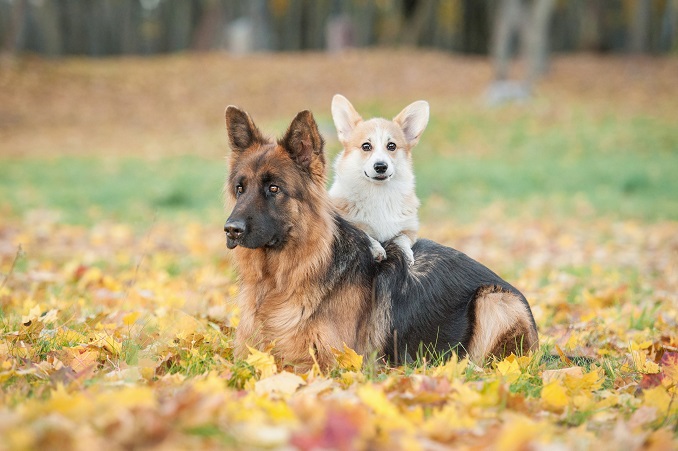
From Adobe Stock
A Corgi German Shepherd has a visible resemblance to its parent breeds. It has large, upright ears, tufted like a German shepherd’s, and a long muzzle. In addition, it has the almond-shaped brown eyes of a German Shepherd, but with the approximate size and shape of a Corgi.
Size and Weight
Talking about the Corman Shepherd’s size and weight brings me back to the importance of a balanced diet for these adorable mixed breeds. They’re the perfect blend of small-to-medium-sized dogs, inheriting the long body and short legs characteristic of their Corgi lineage. I’ve seen firsthand how quickly a Corman Shepherd can gain weight if not monitored closely, and it’s something I always advise pet parents to be mindful of to avoid any health risks.
Coat and Colors
When it comes to their coat, Corman Shepherds have this wonderful, thick, soft, and silky double coat that they inherit from both their Corgi and German Shepherd parents. The shedding! Oh, the shedding. It’s something you have to get used to, requiring regular grooming sessions that soon become a bonding experience for you and your dogs. The variety in coat color and pattern is something that fascinates me. From tan, brown, white, to black, the mix can take after either parent, leading to a beautiful array of Corman Shepherd looks. I always find it exciting to see the unique combinations each Corman Shepherd puppy inherits.
Stature
Their stature is something that really sets the Corman Shepherd apart. They’re this unique mix of short and stocky, yet durable and energetic. It’s a sight to behold when they run and jump, full of life and joy. However, their distinctive body shape, a trait passed down from their Corgi ancestors, does make them more susceptible to joint and back issues as they age. It’s a reminder of the importance of regular vet check-ups and being attentive to their health and wellbeing. In my time around these dogs, I’ve noticed how their stocky build doesn’t take kindly to weight gain, making it all the more important to maintain their physical health. Despite their smaller stature compared to a traditional German Shepherd, Corman Shepherds pack a lot of strength and stamina, a testament to the robust nature of both parent breeds.
German Shepherd Corgi Mix Personality and Temperament
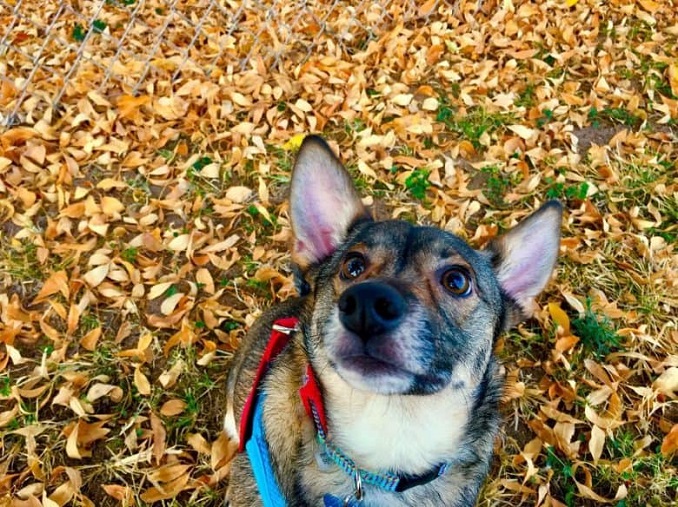
From Adobe Stock
These dogs are brimming with vitality and absolutely thrive on regular exercise. It’s a joy to see them in action, whether they’re playing fetch in the park or going for brisk walks. They truly make exceptional family pets, showing a remarkable affinity for children. Their playful antics and gentle nature have a way of bringing families closer together, creating lasting bonds.
However, I’ve observed that the intelligence and strong will inherited from both parent breeds can pose a challenge, especially for first-time dog owners. Training a Corman Shepherd requires patience, consistency, and an understanding of their problem-solving abilities. It’s not that they’re unfriendly—far from it. These dogs are incredibly loving and loyal, often forming deep, protective attachments to their families. Yet, this protective instinct needs to be guided and channeled appropriately to prevent overprotectiveness.
For active individuals or families who love to spend time outdoors and can provide plenty of stimulation and attention, the Corman Shepherd could be a perfect match. They’re not just pets; they’re companions ready to join in on every adventure. However, for more sedentary households or those already bustling with pets, it’s important to consider whether a Corman Shepherd’s need for attention and activity aligns with your lifestyle. While they can learn to coexist harmoniously with other dogs, their desire to be the focal point of affection is something to keep in mind
German Shepherd Corgi Mix Care Guide
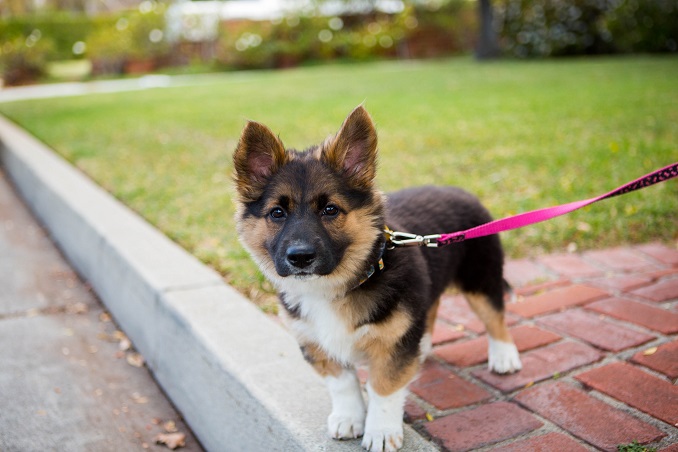
From Adobe Stock
I find that Corgi German shepherds need plenty of exercise and love. Grooming, exercise, and attention are three key aspects to focus on here.
Feeding
Feeding a dog properly is one of the most straightforward yet complex parts of pet care. Over the years, I’ve learned that what works for one dog might not necessarily work for another, especially with mixed breeds like the Corman Shepherd. Let’s delve into the essentials of feeding this vibrant mix, from puppyhood to their golden years.
Feeding Guidelines
In the early stages of a Corman Shepherd’s life, nutrition is pivotal for healthy growth and development. Puppies should be fed high-quality, breed-appropriate puppy food that’s rich in protein to support their muscle growth and development. I typically recommend dividing their daily food intake into 3-4 smaller meals to support their fast metabolism and energy needs. It’s crucial to consult with a vet to ensure they’re getting the right balance of nutrients for this critical growth phase.
As Corman Shepherds transition into adulthood, their dietary needs change. Around the age of 1-2 years, it’s time to gradually shift them to adult dog food. This transition should be slow and steady, mixing the new food with the old in increasing amounts over a week to avoid digestive upset. Adult Corman Shepherds, with their boundless energy, benefit from a diet that’s rich in lean proteins and low in excess fats to maintain their muscular build and prevent obesity, a common concern due to their Corgi heritage.
Reaching their senior years, Corman Shepherds may become less active. Their diet should adjust accordingly, with lower calorie intake to prevent weight gain and added joint support supplements or senior-specific formulas. It’s also a good time to have more frequent veterinary check-ups to monitor their health and adjust their diet based on medical advice.
Transitioning to New Pet Food
Any change in diet, whether due to age or health needs, should be gradual. I’ve seen many cases of digestive issues that could have been avoided with a slower transition. As such, a rule of thumb is to mix the new food with the old, gradually increasing the new food’s proportion over 7-10 days.
Hydration and Diet for Special Needs
Hydration is as crucial as food. Corman Shepherds should always have access to fresh, clean water. Their activity level and the climate they live in can significantly affect their hydration needs. I always remind pet parents to keep an eye on their dog’s water bowl, ensuring it’s filled throughout the day.
Some Corman Shepherds may develop health issues that require dietary adjustments, such as allergies or sensitivities. In such cases, working closely with a veterinarian to identify and cater to these special needs is essential. There are various specialized diets available, and finding the right one can make a significant difference in your dog’s quality of life.
Treats
Treats are a fantastic way to bond with your dog and reinforce good behavior. However, it’s important to remember that treats should not constitute more than 10% of a dog’s daily caloric intake. Opt for healthy, low-calorie options and consider using vegetables like carrots or green beans as treats, which most dogs find delicious and are great for their health.
Grooming
The Corman Shepherd, with its luxurious, thick double coat inherited from its German Shepherd and Corgi parents, presents a unique grooming challenge that I find quite enjoyable.
I’ve learned that brushing your Corman Shepherd two or three times a week, or even daily if possible, is a suitable grooming routine. It keeps their coat smooth and glossy and removes tangles. Further, it enables the natural oils in their skin to spread, giving their fur that beautiful shine we all love. And let me tell you, there’s nothing quite like the feeling of a well-groomed dog cuddling up to you.
Bathing your Corman Shepherd is another part of the grooming routine that should be done occasionally, but not too often. I’ve found that waiting eight to ten weeks between baths works well, unless, of course, they decide to roll in something unsavory, which, as any dog owner knows, happens more often than we’d like! Due to their thick coat, it’s important to ensure they’re dried thoroughly after each bath to keep their skin healthy.
I also stress dental hygiene to all dog owners. Cleaning your Corman Shepherd’s teeth at least three times weekly can prevent gum disease and other dental issues. It’s a habit that once established can significantly impact their overall health.
Don’t forget about those ears and nails, either. Cleaning the insides of your dog’s ears once a week with a pet-safe solution can prevent infections, and regular nail trims are essential to avoid discomfort and potential mobility issues. Learning to do this properly, perhaps with guidance from your vet, ensures that grooming remains a pain-free process for your furry friend.
Training and Exercise

From Adobe Stock
Your German Shepard Corgi needs regular training and exercise, and here are some guidelines.
Exercise
Despite their somewhat compact size, Corman Shepherds are bundles of energy, and they require a good 60-120 minutes of exercise each day to stay happy and healthy. It’s a commitment, but one that comes with great rewards.
I’ve noticed that a mere stroll around the block hardly scratches the surface of their energy levels. These dogs crave more engaging activities like hiking, running, or even swimming. Incorporating these high-intensity exercises into your daily routine not only keeps them physically fit but also deepens the bond between you and your dog. And let’s not forget play sessions; they’re not just fun but are a fantastic way to keep your Corman Shepherd mentally stimulated and connected with you.
From what I’ve seen, breaking up the exercise into smaller, more manageable chunks throughout the day works best. It aligns well with your schedule and caters to the times when your Corman Shepherd is most energetic and ready to go. There’s nothing quite like the satisfaction of seeing them content and tired after a good day’s exercise.
However, if you start noticing signs of destructive behavior or an inability to settle down, it might be a signal that your Corman Shepherd is not getting enough physical activity. It’s a clear indicator to step up the exercise routine, ensuring that these intelligent and active dogs get the stimulation and physical outlet they need.
Training
From my conversations with pet owners and drawing from my insights into dog behavior, it’s clear that training a Corman Shepherd presents a unique set of challenges and rewards. These dogs are remarkably intelligent, a trait that allows them to pick up on commands and tricks quite swiftly. However, this intelligence comes with a side of stubbornness and a strong will, especially if they sense any inconsistency or if boundaries aren’t firmly set. This combination can indeed make training a bit of a puzzle, particularly for those who may not have as much experience with dog training.
Many pet owners I’ve talked to have shared that establishing a positive relationship with their Corman Shepherd from the get-go is crucial. Starting training early and sticking to it consistently helps set the tone for a well-behaved adult dog. Positive reinforcement is key; using treats, praise, and plenty of encouragement tends to yield better results than harsher methods. Punishing or shouting at a Corman Shepherd, or any dog for that matter, can lead to resentment and aggression, something we all want to avoid.
Socializing your puppy early on is another piece of advice I often give. Introducing them to a variety of people, animals, and situations can help ensure they grow into confident and anxiety-free adults. A well-socialized Corman Shepherd is more likely to be tolerant of strangers and other animals, significantly reducing the likelihood of aggressive behavior.
Establishing yourself as the alpha, or leader, of the pack is something I’ve seen work wonders, yet it’s often misunderstood. Being the alpha doesn’t mean being aggressive or dominating; rather, it’s about setting clear boundaries and rules calmly and assertively. For instance, deciding not to feed your dog at the dinner table is a boundary that, once set, should be consistently upheld by everyone in the household.
Incorporating playtime into training sessions can also be highly effective, especially since Corman Shepherds tend to be food-motivated. This approach makes learning more enjoyable for them and strengthens the bond between you and your dog. And let’s not forget the power of praise and attention. Corman Shepherds, with their sweet and loving nature, thrive on spending time with their families. Recognizing and rewarding their good behavior with your attention can be just as motivating as any treat.
Mental Needs
This breed thrives on love and attention, and in my discussions with fellow dog lovers, I’ve noticed a common theme: these dogs often prefer being the only pet, as it allows them to soak up all the affection and engagement from their family.
Given their sharp intellect, Corman Shepherds require toys and activities that push them to think and solve problems. I suggest pet parents introduce puzzle toys into their dog’s routine. These not only provide entertainment but also offer valuable mental stimulation. Watching a Corman Shepherd work out a puzzle box to get to a treat is incredibly rewarding. However, it’s wise to keep an eye on the treat intake to ensure they’re not overindulging.
Moreover, incorporating chew toys, tug toys, and even a simple ball for fetching can add variety to their playtime, keeping them engaged and happy.
German Shepard Corgi Health Issues
As mixed-breed dogs, Corgi German Shepherds are sturdier and healthier than most pedigrees. They enjoy a long and healthy lifespan on average and don’t usually face the health issues that plague Corgis or German Shepherds. Nevertheless, they may still suffer from the following:
Hip Dysplasia
One of the health issues I often caution potential Corman Shepherd owners about is hip dysplasia. This condition, unfortunately, is a common thread inherited from the German Shepherd side of the family. Hip dysplasia involves an abnormal formation of the hip joint, leading to arthritis or crippling lameness. Symptoms can vary widely but often include difficulty rising, reluctance to run, jump, or climb stairs, and a noticeable limp. The causes of hip dysplasia are a mix of genetic and environmental factors, including rapid weight gain and improper nutrition. From my experience talking with veterinarians and breeders, maintaining a healthy weight and proper exercise can help manage the symptoms, though severe cases may require surgical intervention.
Obesity
Obesity is another health concern I often discuss with fellow dog enthusiasts, particularly regarding the Corman Shepherd. Given their Corgi heritage, which includes a propensity for weight gain, keeping an eye on their diet and exercise regimen is crucial. Symptoms of obesity in dogs are similar to those in humans, including excess body fat, difficulty in physical activity, and an increased risk of diabetes, joint problems, and heart disease. The cause often boils down to overfeeding and lack of exercise. I always emphasize the importance of a balanced diet and regular exercise to fellow pet parents to prevent obesity and its associated health risks.
Degenerative Myelopathy
Degenerative Myelopathy is a progressive disease of the spinal cord, commonly seen in the parent breed, the German Shepherd and it can affect Corman Shepherds as well. It usually presents in older dogs, starting with weakness in the hind limbs, leading to paralysis. The exact cause is unknown, but it’s believed to have a genetic component. Watching a dog go through the stages of degenerative myelopathy can be heart-wrenching, and while there’s currently no cure, supportive care can make a significant difference in the quality of life for affected dogs. Conversations with veterinarians have taught me the value of early detection and supportive care, which can include physical therapy and mobility aids.
Allergies
Allergies are another health issue I’ve learned that Corman Shepherds may inherit from both parent breeds. Symptoms can include itchy skin, chronic ear infections, and digestive problems, manifesting from environmental triggers like pollen or dietary sensitivities. The root cause of allergies can often be tricky to pinpoint, requiring patience and perhaps elimination diets or environmental changes to identify.
Corgi German Shepherd Cost
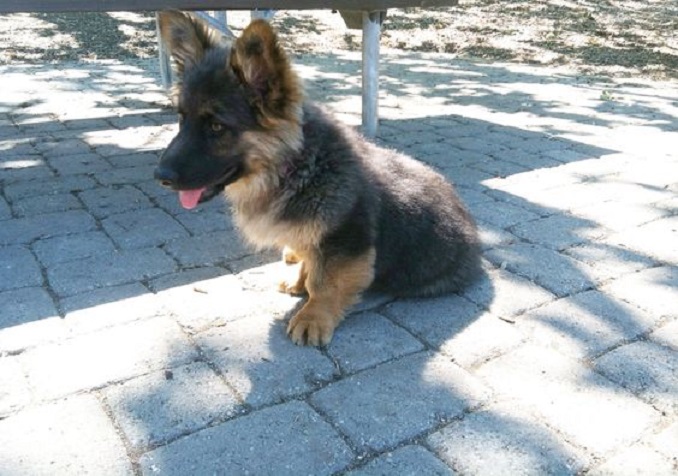
From Adobe Stock
I find that Corgi German shepherds are moderately expensive dogs. How much you’ll need to pay will depend on whether you want a puppy, an older dog, or a dog from a rescue shelter.
How Much is a German Shepherd Corgi Mix?
A German Shepherd Corgi Mix puppy costs around $200 to $750. The price can vary depending on where you buy your puppy, or whether or not it’s a pedigree registered puppy. If a puppy is registered, it means that its lineage can be traced back, proving it’s a genuine breed.
Mixed breeds like a Corgi German Shepherd are deliberately bred from two different pedigrees. This means they’re likely to be healthier, but not cheaper.
On top of that, Corman shepherds are very popular, and this makes them expensive. While you’re unlikely to find a Corman Shepherd at a shelter, it is possible. In that case, adopting your dog would cost around $100, depending on the shelter.
How Much Does it Cost to Raise a German Shepherd Corgi Mix?
Buying food, toys, and bedding for a Corman Shepherd will cost between $450 and $575 per year.
When determining the costs of raising a German Shepherd Corgi Mix, I recommend you also consider the medical costs associated with the breed. For instance, it will cost between $475 and $600 a year for shots, checkups, flea and worming treatments, and more. Medical costs can vary depending on your insurance plan and any health problems your dog may have.
Should You Get a German Shepherd Corgi Mix?
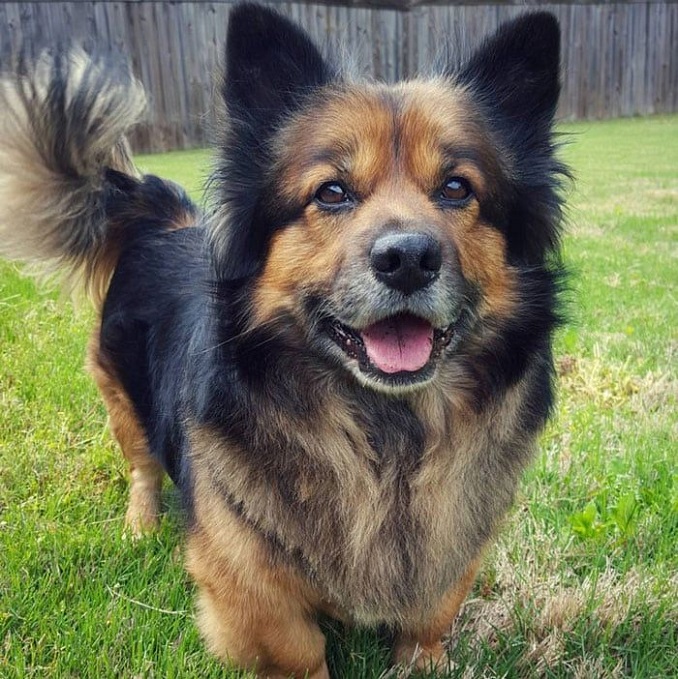
From Adobe Stock
Corgi German Shepherd mixes are energetic, affectionate dogs. While they make wonderful family pets, Corman Shepherds may not be suitable for everyone.
German Shepherd Corgis are Suitable for:
Corman Shepherds have a protective, nurturing nature. This makes them suitable pets for families, especially since they are good with children. In addition, I find that this breed makes an ideal sole pet, preferably in a property with a garden. However, these dogs can also adjust well to apartment life, as long as they get enough exercise.
Corman Shepherds are best suited to owners with an active lifestyle, with lots of walking, hiking, and cardio exercise. You can even take your dog swimming, though make sure to thoroughly wash and bathe it afterward. They are a good match for a dog owner with some experience, preferably with plenty of time and energy to devote to their new pet.
German Shepherd Corgis are Not Suitable for:
Corman shepherds have high exercise needs, and won’t be suitable for owners who can’t give them plenty of daily exercise. They also need to be mentally stimulated.
Some dog owners hire dog walkers to exercise their pets while they’re at work, which is fine. However, your Corman Shepherd will still need a lot of love, attention, and mentally stimulating play when you get home.
Corman Shepherds also don’t bond as strongly with other dogs. They prefer humans and like to be the center of attention. While it can be prevented with early socialization, introducing a Corman Shepherd into a home with several other dogs could lead to bickering or even aggressive behavior.
In short, Corman shepherds can make a wonderful addition to your family, as long as you have the time, energy, and money to properly take care of this breed.
FAQs on Corgi German Shepherd Mix
What is the average lifespan of a German Shepherd Corgi Mix?
The average lifespan of a German Shepherd Corgi Mix typically ranges between 12 and 15 years. This estimate, of course, depends heavily on various factors including genetics, overall health, diet, and exercise. From my discussions with veterinarians and personal observations, ensuring they have a balanced diet, regular exercise, and routine check-ups can contribute significantly to reaching their lifespan potential.
How big does a Corgi German Shepherd Mix get?
A Corgi German Shepherd Mix usually reaches a medium size, given the size difference between the parent breeds. They typically weigh between 30 and 70 pounds and can stand anywhere from 12 to 15 inches tall at the shoulder. The exact size can vary, often depending on which parent breed they take after more. It’s fascinating to see the variation within the mix, and I always remind potential owners to be prepared for a range within those numbers.
Is the Corgi Shepherd Mix good with children?
Yes, the Corgi Shepherd Mix is generally good with children. They inherit the German Shepherd’s protective nature and the Corgi’s playful disposition, making them excellent family pets. However, like with any dog, early socialization and training are crucial. I’ve witnessed many Corgi Shepherd Mixes become cherished members of families, their gentle and loyal nature making them great companions for children.
Do German Shepard Corgi mixes shed a lot?
Yes, German Shepard Corgi mixes do tend to shed a lot. They inherit the double coat from both parent breeds, which means they can shed year-round and have heavier shedding periods typically in the spring and fall. Regular grooming, including brushing a few times a week, can help manage the shedding. Sharing tips and tricks with other dog owners, I’ve found that a good grooming routine can make this manageable.
Are Corgi German Shepherds easy to train?
Corgi German Shepherds can be relatively easy to train due to their intelligence and eagerness to please. However, they may inherit a stubborn streak from the Corgi side, which can pose challenges, especially for first-time dog owners. Consistency, patience, and positive reinforcement are key.
What are the common health issues in Shepherd Corgi Mixes?
Common health issues in Shepherd Corgi Mixes include hip dysplasia, obesity, degenerative myelopathy, and allergies. Each of these conditions can vary in severity, and being proactive about health care can make a significant difference. Regular veterinary check-ups and a healthy lifestyle are essential. I always encourage pet owners to stay informed about these potential health issues and to work closely with their vet for the best care strategies.
The Rewards for Loving a Corman Shepherd are Limitless
Their capacity for companionship, coupled with an eagerness to engage in physical and mental activities, sets them apart in the canine world.
These dogs thrive on interaction and are happiest when fully integrated into their family’s daily life. Therefore, the Shepherd Corgi Mix is for those who can provide ample time for exercise, mental stimulation, and affection. As such, it’s for the active individual or family who loves being outdoors and wants a loyal companion by their side.
These dogs are not suited for those looking for a low-maintenance pet or who are away from home for long periods. Moreover, their intelligence and sometimes stubborn streak can be challenging for first-time dog owners without the time or inclination for consistent training.
Other Corgi and German Shepherd Mixes
If you’re interested in learning about other German Shepherd mixes or Corgi mixes, check out the hybrid dog breeds below.
Corgi Mixes
German Shepherd Mixes






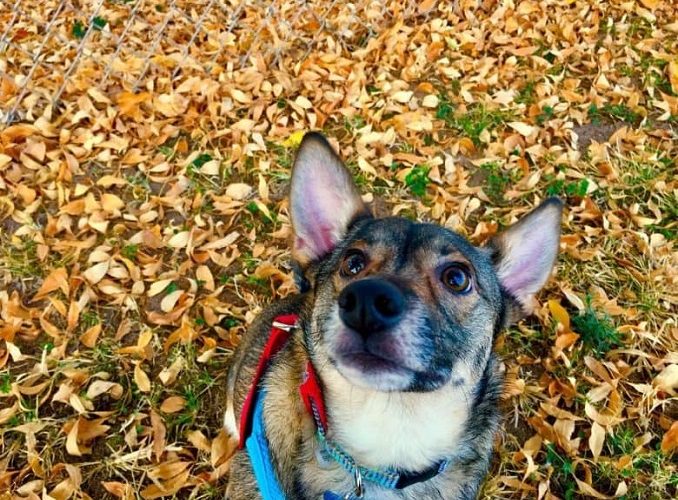
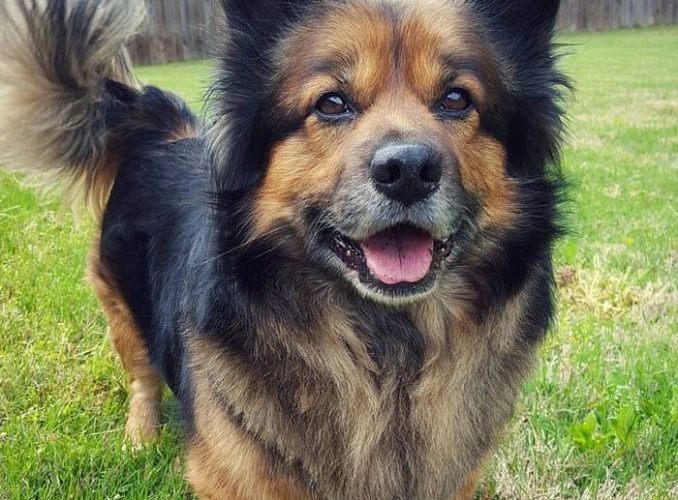

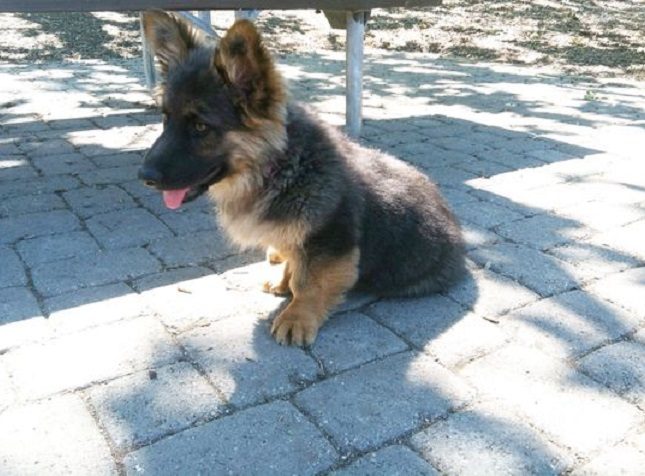

Be the first to comment